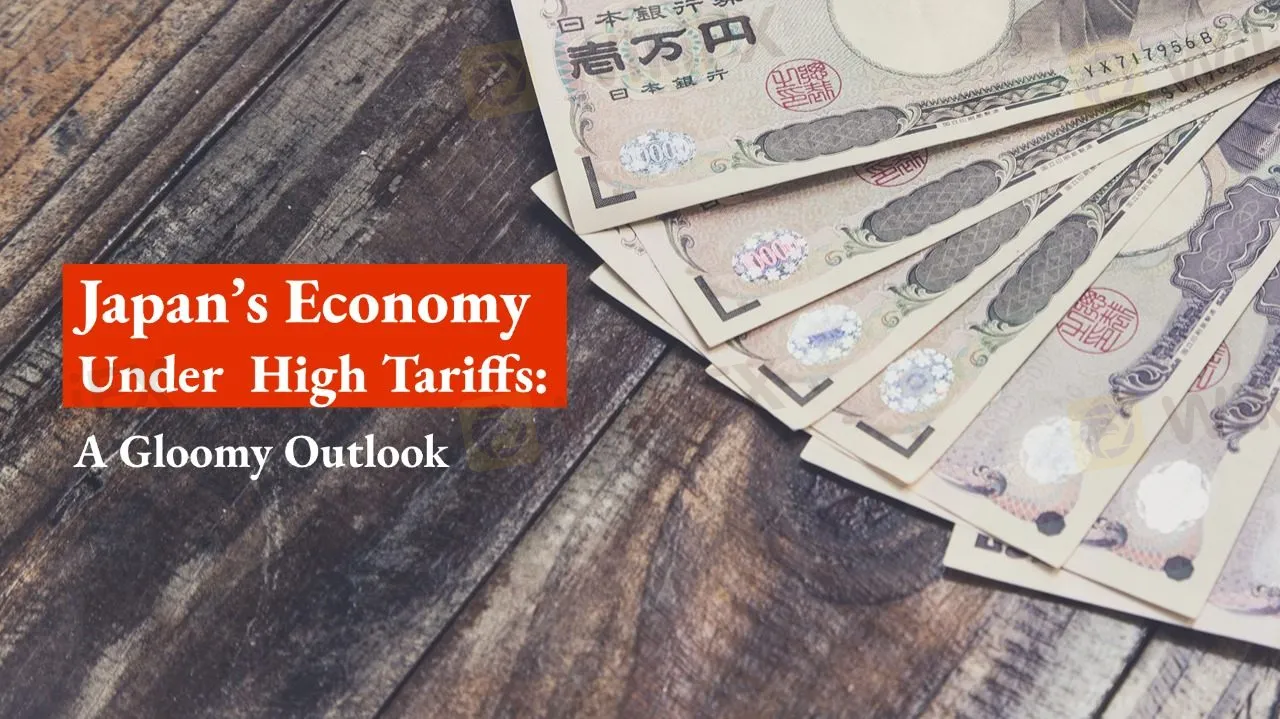简体中文
繁體中文
English
Pусский
日本語
ภาษาไทย
Tiếng Việt
Bahasa Indonesia
Español
हिन्दी
Filippiiniläinen
Français
Deutsch
Português
Türkçe
한국어
العربية
Japan’s Economy Under High Tariffs: A Gloomy Outlook
Abstract:Export restrictions, currency fluctuations, and upcoming tariff talks cloud Japan's economic outlook.

Japan's economy is currently navigating a period of heightened uncertainty, primarily driven by export challenges. As the automotive industry, which is crucial for Japan‘s exports to the U.S., faces tariffs as high as 25%, the country’s export-driven economy is under severe strain.
In addition to tariff pressures, fluctuations in the Japanese yen are raising concerns over the central banks next moves. Ahead of the upcoming trade talks between Japan and the U.S., Japan has made its stance clear, signaling its intent to hold firm and secure a better position in negotiations.
The economic challenges Japan faces go beyond tariffs. As semiconductor and AI hardware emerge as key points of contention in international trade, these sectors may also be affected by tariffs. Furthermore, the yens ongoing volatility complicates Japan's monetary policy.
If the Bank of Japan raises interest rates too quickly, it could harm corporate investment and consumer spending. Conversely, maintaining accommodative policies may lead to further depreciation of the yen and increased import costs. Policymakers are navigating a complex situation, where any misstep could have significant consequences for Japans recovery.
Uncertain Negotiations, A Need to Rebuild Policy Trust
Looking ahead, Japan faces challenges not only at the negotiation table but also in rebuilding domestic confidence in its economic policies.
The past perception of a “special relationship” with the U.S. under former Prime Minister Abe did not result in tangible protection, leaving the current leadership under greater scrutiny. The challenges Japan faces are no longer limited to trade numbers; they involve macroeconomic policy coordination and long-term strategic adjustments.
Balancing export competitiveness with domestic demand, while stabilizing the yen and controlling inflation, will be key issues for Japans economy moving forward.

Disclaimer:
The views in this article only represent the author's personal views, and do not constitute investment advice on this platform. This platform does not guarantee the accuracy, completeness and timeliness of the information in the article, and will not be liable for any loss caused by the use of or reliance on the information in the article.
Read more

Truth About Markets.com: 5 Hidden Risks Revealed
There are many brokers that offer too many promotions. Have you ever wondered why they do this? This Could be the story of Markets.com. Before you choose Markets.com, read about the hidden risks they never openly talk about.

5 Reasons: Microtrade Is a Red Alert
Is MicroTrade a scam or is it safe? This is a common question for many who are looking to invest or trade. Check out this article and you’ll see it is an investment scam

No License, No Security: CNMV Issues List of 10 Illegal Firms
Spain's financial watchdog, the National Securities Market Commission (Comisión Nacional del Mercado de Valores, CNMV), has issued warnings against 10 unlicensed forex brokers operating without proper authorization.

Manual vs. Automated Forex Trading: Which One Should You Choose?
Both manual and automated forex trading have their strengths and weaknesses. Should you trade manually or use automated systems? Today’s article may give you some clues.
WikiFX Broker
Latest News
Global stock markets are calling Trump's bluff on tariffs
Trump's tariffs overshadow the pomp and pageantry as Macron meets King Charles
Boeing delivers most airplanes since late 2023 after ramping up 737 Max output
Inflation expectations drift back down to pre-tariff levels, New York Fed survey shows
MT4 vs MT5: A comprehensive comparison in terms of functionality
Top Forex Trading Strategies for the London Session
Swissquote Takes Full Control of Yuh Digital Finance App in Major Deal
Top 5 Forex Pairs Every Trader Should Have on Their Radar
What WikiFX Found When It Looked Into Decode Global
Treasury yields rise as Trump's new tariff rates in focus
Currency Calculator


